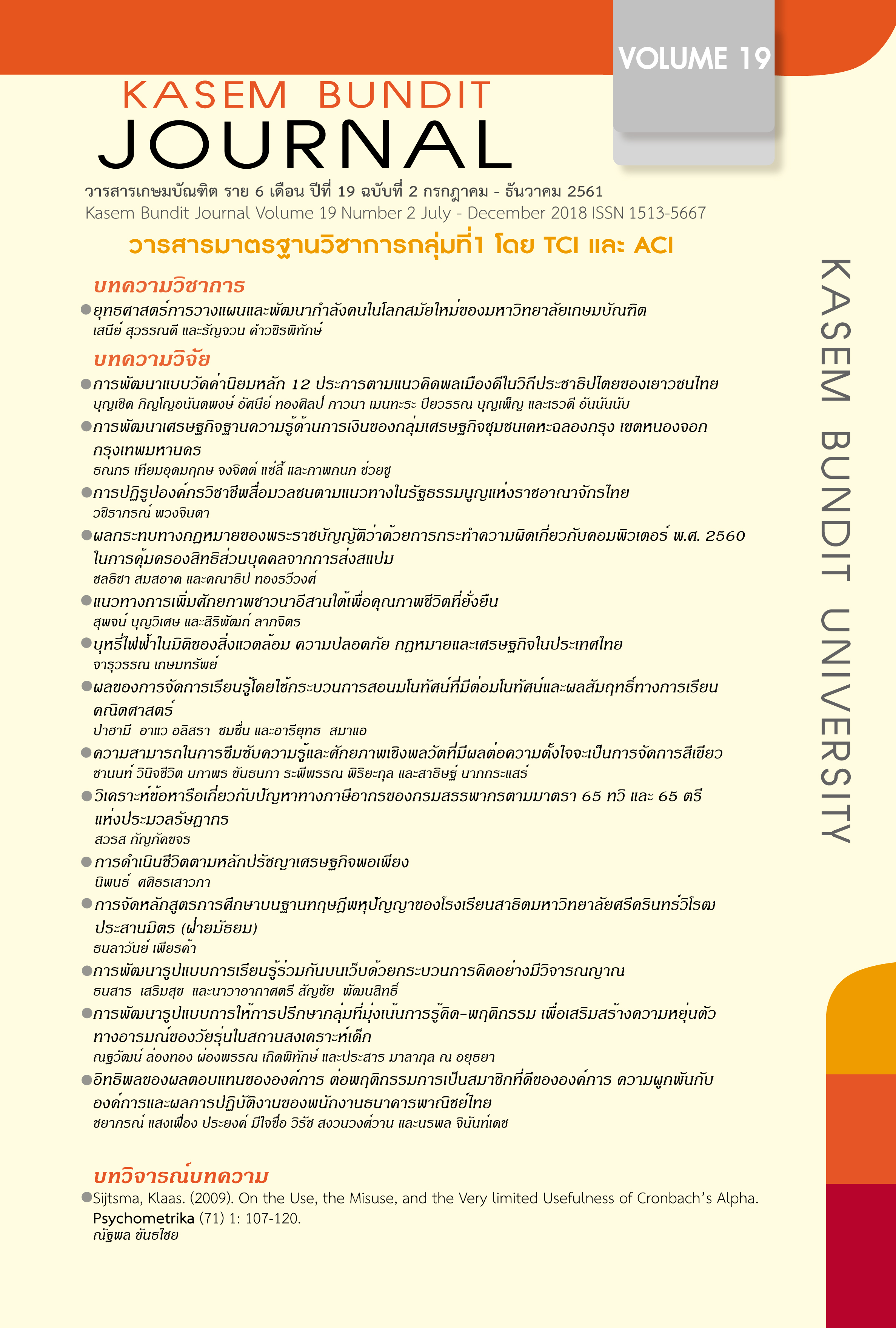Way of Life by Means of the Philosophy of Sufficiency Economy
Keywords:
Living one’s life, Philosophy of Sufficiency Economy, quality of lifeAbstract
The purposes of this research were twofold: to study the condition of living one’s life and the quality of local people’s life based on the Philosophy of Sufficiency Economy, and to study the correlation between the condition of living one’s life and the quality of people’s life in Bangnanglee Sub-district Administrative Organization, Amphawa District, Samutsongkham Province. Mixed research methodology was employed. Questionnaire was used to collect data from 371 samples of villagers in all villages in the Sub-district. Eight headmen of the sub-district were interviewed for in-depth analysis. It was revealed that the correlation between the condition of living one’s life based on the Philosophy of Sufficiency Economy in terms of both knowledge and morals and the quality of people’s life in terms of being logical and gaining good immunity, but not in terms of being sufficient due to the differences of sufficiency level among different families based on income. It was recommended that household account should be promoted so that self-awareness of family sufficiency level will be recognized.
References
Khemthong, S. (2017, 9th May). Head of the Office of Chief Administrator of Bangnanglee Sub-istrict. Interview.
Limsuwan, O. (2560, 9th May). Deputy Chief Administrator of Bangnanglee Sub –district Administrative Organization. Interview.
Phumtong, W. (2548). “Conception Framework and Directions of the Country Development in the National Economic and Social Development Plan”. Journal of Economy and Social. 36(10):37.
Punnasin, K. (2017, 9th May). An Analyst, Bangnanglee Sub-district Administrative Organization. Interview.
Siamwalla, Ammar. (1997). “Can a developing democracy manage its macroeconomy: The case of Thailand”. TDRI Quarterly Review, 12(4): 39-48.
The Committee of Mobilizing Sufficiency Economy. (2550). Collections of King Rama IV’s Speech relating to Sufficient Economy from 1950 – 2006. (5th edition) Bangkok: Office of the National Economy and Social Development Board, pp. 8-19.
The National Economic and Social Development Board. (2554). Sufficient Economy Philosophy. Bangkok: 21st Century Printing, pp. 4-5.
The Office of the National Economic and Social Development Board. (2548). Sufficient Economy Philosophy. Bangkok: 21st Century Printing.
The Office of the National Economic and Social Development Board. (2549). 90 % of Thais aware of “Sufficiency Economy”, while the majority lacks the clear insight. Retrieved July 12th, from www.nesdb.go.th/news/template/ highlights/detail.
The Office of National Health Reform. (2549). Sufficient Economy: Foundation of Social Happiness. Matichon Weekly.
Tongpakdee, N. (2550). “Sufficiency Economy: Background and Definition”. NIDA Development Journal. 47(1) : 1-25.
Wiratniphawan, W. (2550). The Administration based on Principles of Ethics and Sufficiency Economy. Bangkok: SAT Four.
Wongsawas, N. (2017, 9th May). Deputy Chief Executive of Sub-district Administrative Organization. Interview.
Wongsawas, S. (2017, 9th May). Headman of Bangnanglee Sub-district. Interview.
Downloads
Published
How to Cite
Issue
Section
License
ทัศนคติ ความคิดเห็นใด ๆ ที่ปรากฏในวารสารเกษมบัณฑิตฉบับนี้เป็นของผู้เขียน โดยเฉพาะ มหาวิทยาลัยเกษมบัณฑิตและบรรณาธิการ ไม่จำเป็นต้องมีความเห็นพ้องด้วย







